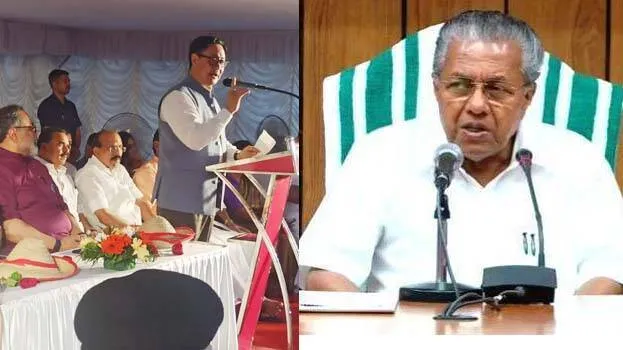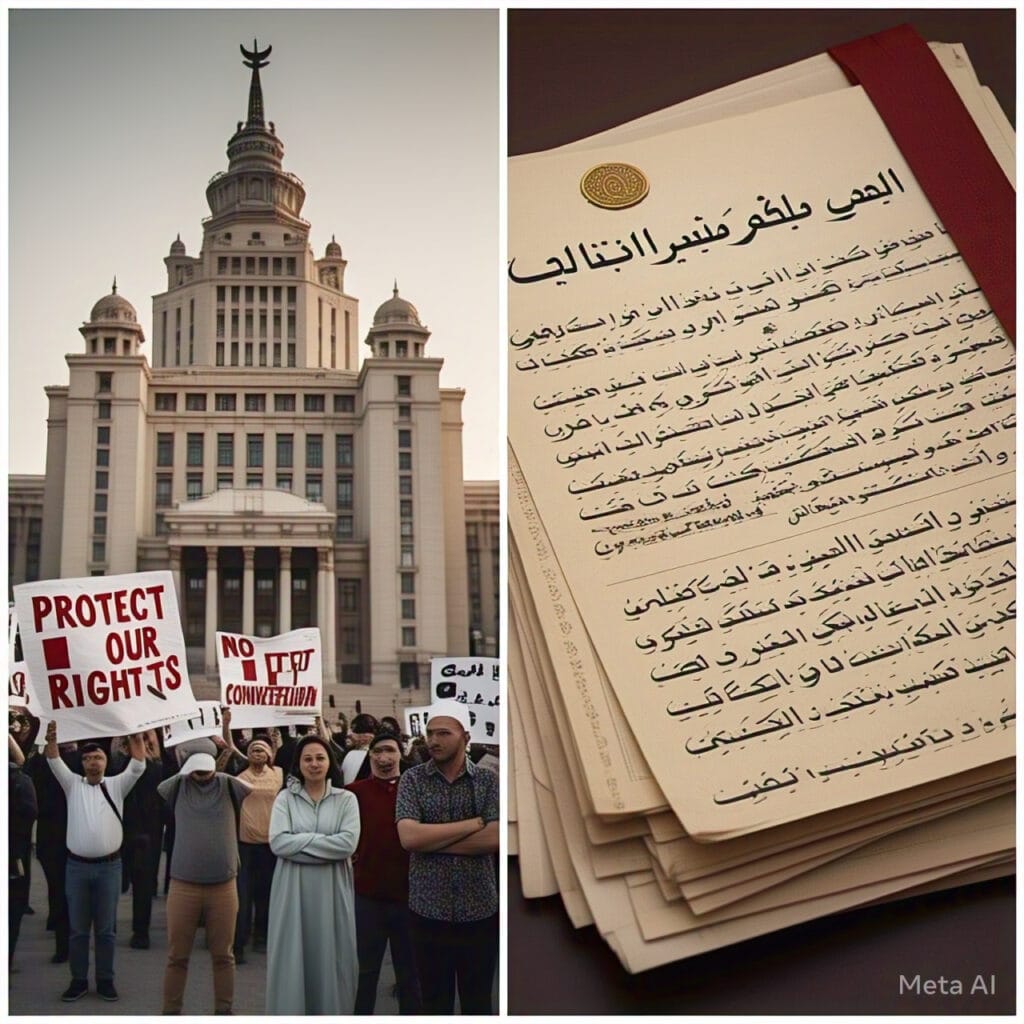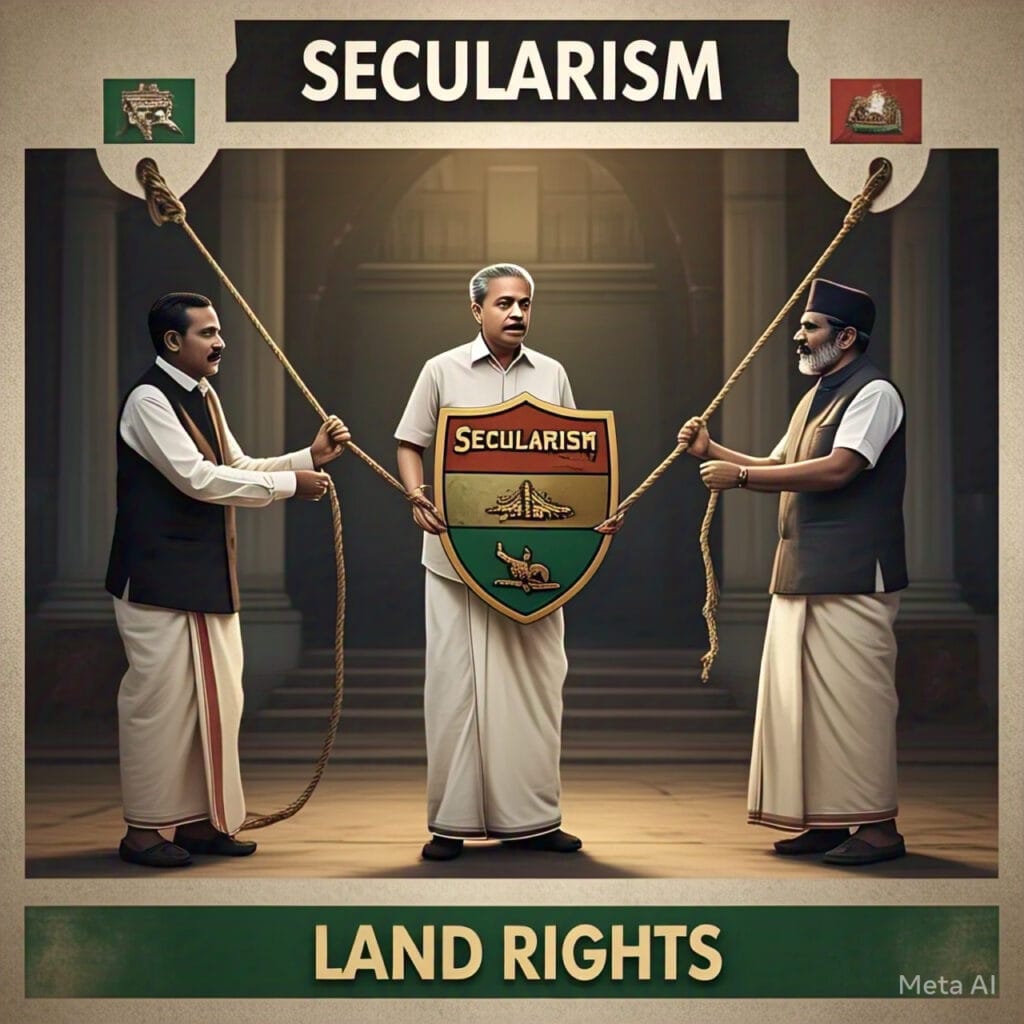In a fiery political landscape increasingly defined by religion, land, and identity, Kerala’s Chief Minister Pinarayi Vijayan has reignited the debate surrounding the Waqf Amendment Bill by outright rejecting it as a solution to the Munambam land dispute. His statement that “the Waqf Bill will not solve the issue” and that “BJP’s political exploitation has failed” is more than just a jab at the Centre—it’s an assertion with deep ideological and electoral implications.
But the question remains: Is Vijayan standing up for justice—or playing his own political game by shielding religious land monopolies in the name of secularism?

📍 What Is the Munambam Dispute Really About?
At the heart of the controversy is Munambam, a coastal Christian-majority area in Kerala’s Ernakulam district, where local residents claim that the Waqf Board has attempted to claim ownership over their church lands, schools, and community property. The villagers argue that the land had been in Christian possession for over a century—some since British times.
When BJP’s Kiren Rijiju entered the scene with promises of redress through the Waqf Amendment Bill, it triggered a rare moment of support from sections of Kerala’s Christian population—people who are usually wary of saffron politics. Suddenly, a new political alignment seemed possible.

🧾 The Waqf Amendment Bill: Liberator or Distraction?
The BJP has promoted the Waqf Amendment Bill as a way to empower local administrations to question Waqf land claims, ensure transparency, and restrict the Waqf Board’s ability to claim land without substantial proof or public notification.
To its supporters, especially Christian and Hindu groups who have long felt alienated by Islamic endowment boards’ opaque land grabs, this bill represents long-overdue legal accountability. Many see it as protection against “land jihad”—a term controversial in itself but indicative of the sentiment that Waqf boards have acquired vast properties with minimal oversight.
However, critics argue that the bill is a communal tool designed to polarize voters and frame Muslims as land usurpers, a narrative that conveniently boosts the BJP’s anti-minority image.
So when Chief Minister Vijayan says the bill won’t solve Munambam’s crisis, is he speaking legal truth—or protecting vote banks?

⚖️ CM Vijayan’s Calculated Counterpunch
Vijayan’s comments accuse the BJP of using Munambam as a “political weapon.” According to him, the Waqf Bill is not the magic bullet it’s advertised as, and the protests have been manipulated for communal gains.
But critics of the LDF government point to a double standard. If Vijayan is so invested in protecting the Munambam residents, why hasn’t the state government taken firm legal action against what residents call encroachment? Why hasn’t the LDF intervened with clarity, transparency, or constitutional reform of the Waqf laws?
After all, Kerala’s Christian population—especially Latin Catholics and Syrian Christians—have been long-standing stakeholders in Kerala’s educational and social infrastructure. Their allegations against Waqf encroachment aren’t new, just newly vocal.
Instead of addressing that, Vijayan focuses on the BJP’s failures—raising the suspicion that his government is less interested in justice and more in political deflection.

🕍 The Larger Question: Who Controls Sacred Land in Secular India?
The Munambam case isn’t an isolated incident. Across India, Waqf Boards control over 6 lakh acres of land, much of it acquired through historical claims, some poorly documented. In many instances, Hindus, Christians, and even secular institutions have alleged illegal land grabs by Waqf bodies with little state oversight.
The Waqf Amendment Bill seeks to establish a system of checks and balances. But if even moderate reforms are met with intense resistance from so-called “secular” governments like Kerala’s LDF, one wonders: are they protecting minorities—or guarding institutions they can manipulate?
This is the uncomfortable truth that no party—Congress, LDF, or even BJP—is fully willing to confront.
🧩 Christian Outreach: A Gamble That’s Slipping Through BJP’s Fingers?
For the BJP, Kerala’s Waqf land dispute was more than a legal issue—it was a political opportunity to pierce the Christian vote bank, which has largely remained outside their grasp.
Kiren Rijiju’s visit and vocal support of the Munambam protestors signaled this shift. Yet, with Vijayan seizing control of the narrative and accusing BJP of deception, the momentum may be slipping.
The Christian community is watching closely. On one hand, they appreciate the BJP’s sudden attention to their grievances; on the other, they are skeptical of the party’s true motives. If the BJP fails to back their rhetoric with legal wins or clear follow-through, the damage could be irreversible.

🔥 Double Standards All Around?
Let’s be honest—every party involved is playing politics:
- BJP wants to use the Waqf issue to gain Christian support and erode Muslim-backed parties like IUML.
- LDF, under Vijayan, wants to paint BJP as anti-Muslim while doing little to address Christian concerns.
- IUML is caught in a bind—defending Waqf control while maintaining public credibility.
- Congress remains spineless, offering neither critique of Waqf practices nor support to the Christian protestors.
And the people of Munambam? Still protesting. Still unheard.
🧠 Conclusion: Political Theater or Grassroots Battle for Rights?
Pinarayi Vijayan may be technically right when he says the Waqf Bill won’t alone solve Munambam. After all, lawmaking without enforcement is just paper. But by turning the issue into a BJP smear campaign, he avoids the bigger question:
Why are ordinary Christians in Kerala forced to protest just to defend land they’ve held for generations?
If BJP is accused of exploitation, then so must the LDF be—of neglect, obfuscation, and political cowardice.
In the end, the Waqf Bill is not just a policy—it’s a litmus test. Not just for the BJP’s sincerity, but also for the Left’s integrity, the Congress’s courage, and India’s commitment to secular justice.